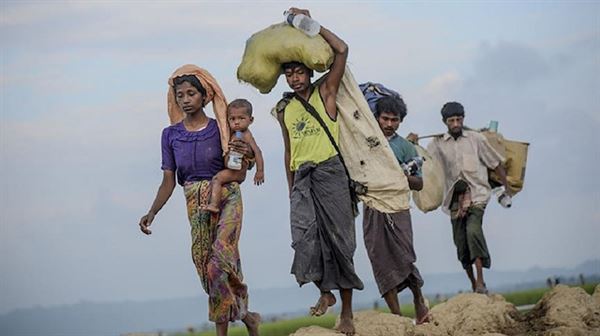Even as Bangladesh has been a success story over past one decade, in terms of democracy taking roots and an improved human development index, there is
Even as Bangladesh has been a success story over past one decade, in terms of democracy taking roots and an improved human development index, there is, however, no improvement on the human rights front, claim various civil rights groups.
On eve of International Human Rights Day, a local rights body, Odhikar has documented cases of 1,921 people, having fallen victim to extrajudicial killings and another 600 people having disappeared in the country since 2009. The world observes Human Rights Day on Tuesday to commemorate the adoption of Universal Declaration of Human Rights by the UN General Assembly in 1948.
Sheikh Mokhlesur Rahman Jony, 25, residing in remote southwestern district of Satkhira had gone to buy medicine for his sick father in August 2016. His parents are still awaiting his return.
“We did locate him in a local police station and even met him there. But three days later, police abruptly denied that he was in their custody. “Since then, we have been running from pillar to post, to locate him,” Jesmin Akter, wife of Jony told Anadolu Agency.
“We filed a lawsuit before in the court. They (judiciary) ordered several investigations. But there is no progress,” she added. Jesmin was three-month pregnant, when her husband went missing. Her daughter is now three-year old, awaiting to see her father.
Human rights groups have documented hundreds of such stories across Bangladesh. This in contrast to the country earning kudos for hosting more than 1.2 million Rohingya refugees. The country is also serving its three-year term as member of the UN Human Rights Council.
Citing government’s commitment to uphold human rights, President Abdul Hamid and Prime Minister Sheikh Hasina have issued messages on the occasion of the Human Rights Day.
Talking to Anadolu Agency, human rights activist Nur Khan said the government looks indifferent to their demands of setting up of an independent commission to probe disappearances and extrajudicial killings.
“Torturing women, children and opposition politicians is alarmingly rising in the country. People are excessively cautious, while speaking and expressing opinion, “said Khan, who is the director of Dhaka-based rights group Ain O Salish Kendra (ASK).
The current ruling party Awami League while in opposition was critical against extrajudicial killings, during the previous government of Begum Khaleda Zia, leader of Bangladesh Nationalist Party. During Khaleda Zia government from 2001-2006, a total of 1,199 people had fallen victim to extrajudicial killings.
Despite court observation, rights abuse continues
The rights body has documented killing of 3,453 people by law enforcement agencies since 2001. These also included 50 Rohingya people, killed in crossfire in the name of anti-drug drive.
On July 4, 2019, Bangladeshi High Court asked law enforcers not to take law in their own hands by indulging into extrajudicial killings. Despite court’s strict observations, 204 people were killed since July, according to ASK.
According to Odhikar report, a total of 513 people were victims of enforced disappearance by law enforcers from 2008-2018.
In many cases, law enforcers do not produce the detainees before the court and dead bodies of many such victims were later found on roadside or in remote areas, the rights body alleged.
Sexual harassment to women and children is also on alarming rise. In the first six months of 2019, some 630 women were raped and 37 were killed after rape while seven committed suicide after being assaulted, reported ASK. Meanwhile, 39 people including females were murdered in mob lynching in 2018, incurring huge criticism worldwide.
“There have been hardly any proceedings against those policemen found involved in disappearances or extrajudicial killings,” Iftekharuzzaman, executive director of Transparency International Bangladesh, told Anadolu Agency.
Government denies involvement in killings
Home Minister Assaduzzaman Khan Kamal denied extrajudicial killings by law enforcement agencies.
“When policemen were operation against drug dealers, they came under heavy firing. The law enforcers had to return fire in self-defense. Policemen do not open fire at innocent civilian,” a newspaper the Independent, quoted Kamal as saying during an anti-drug rally in Dhaka on March 9, 2019. He said the government does not support or encourage extrajudicial killings.
Dhaka Metropolitan Police spokesperson Masudur Rahman told Anadolu Agency that there is huge confusion in the figure of extrajudicial killings used by Odhikar and some other rights bodies.
“They have randomly categorized different incident of killings as extrajudicial killings,” Rahman said.
National Human Rights Commission Chairman Nasima Begum, however, told Anadolu Agency that the commission is actively perusing cases against law enforcement agencies found involved in human rights abuses.
“In case of rights abuses by law enforcers, we investigate and file report to concerned authorities,” she added. She said: “Very recently we have investigated some allegations [against law enforcers] and we are preparing report and hopefully we will submit the report to concerned authorities soon.”
